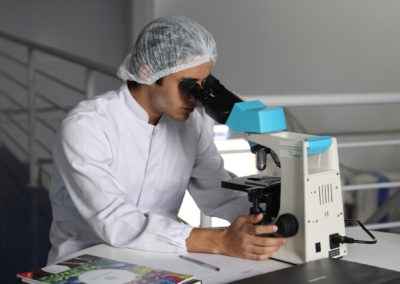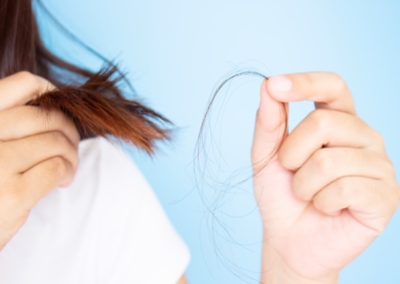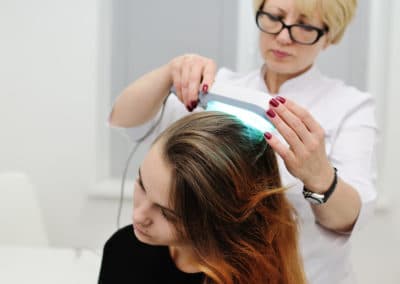Trichology
We diagnose the cause of hair loss and scalp conditions
What is Trichology?
Trichology is the science of the structure, function and diseases of the human hair. Clinical trichology is the diagnosis and treatment of diseases and disorders of the human hair and scalp but also incorporates other aspects of the body.
What is the role of A Trichologist
Trichologists adapt a holistic approach to treatment, ensuring to take into account many different factors, such as lifestyle, diet and wellbeing as a whole, as well as the signs and symptoms present. . A Trichologist can help clients with the diagnosis and treatment of problems of the hair, scalp and hair follicles, which lead to symptoms of dandruff, itching, psoriasis, male pattern baldness, female pattern baldness, autoimmune conditions such as alopecia areata, traction alopecia, and other serious conditions.
Patients may complain of sudden excessive hair loss from all over the scalp, a bald patch which has suddenly appeared, or itching and excessive scaling of the scalp.
What does a trichology consultation involve?
The consultations are private, confidential, in a discreet setting and designed to help you understand what options are available and best for you. Each of our clients is provided with individualised attention.
The trichologist will perform a full health assessment comprising of questions on your health, lifestyle, diet and genetic history, medications and supplements. We perform an examination of the hair and scalp which will help to assess the problem and determine contributing factors. A microscopic analysis of the hair and scalp will be performed to aid in the diagnosis and extent of the problem.
What types of treatments does a trichologist recommend?
Treatments by the trichologist might consist of the application of a specialised or customised hair or scalp treatment, nutritional therapy, lifestyle adjustments. Further testing may be suggested such as Hair tissue mineral analysis, H4H health for hair, GI, OMX organic and amino acids or food sensitivity. Treatments are aimed at recovery and subsequent maintenance.


Microscopic analysis can identify:
- MPHL – Male pattern baldness
- FPHL- Female pattern baldness
- Presence of yeast and fungi on the scalp
- Autoimmune conditions such as Alopecia areata, FFA-Frontal Fibrosing Alopecia
- Generic abnormalities
- Mechanical damage
- Follicular and scalp Inflammation
- Psoriasis
- Seborrheic dermatitis
The trichologist will advise what treatment is necessary and discuss with you the available options. If the condition requires a contribution or referral to another specialist you will be advised accordingly. A multi dimensional approach may be required







